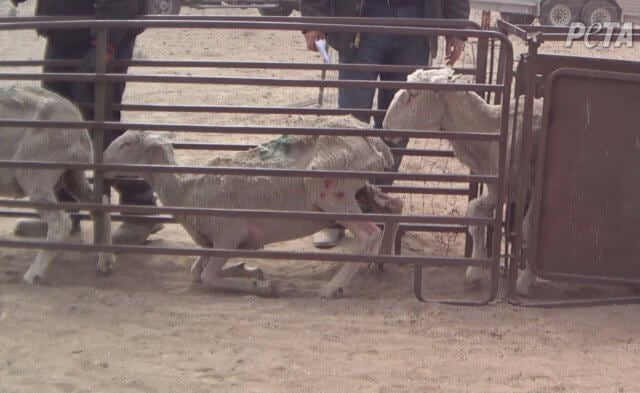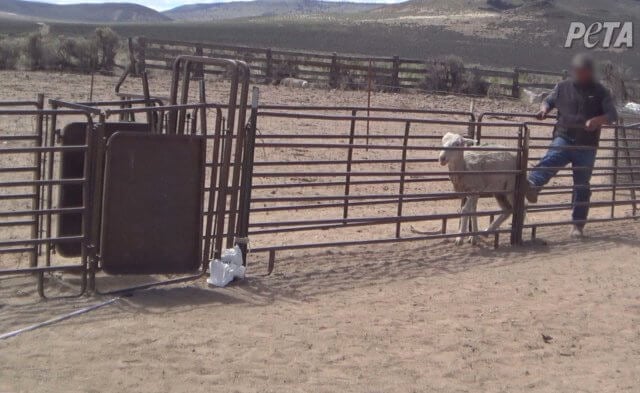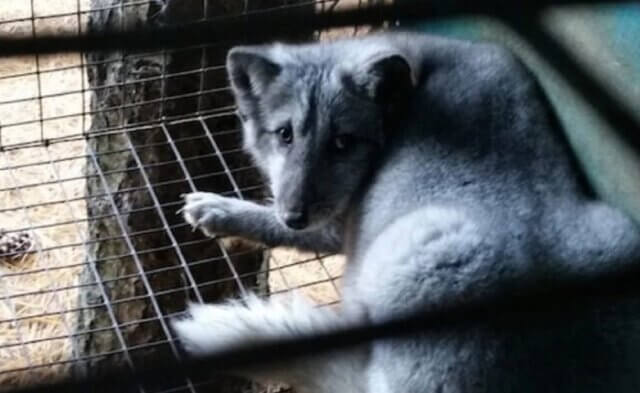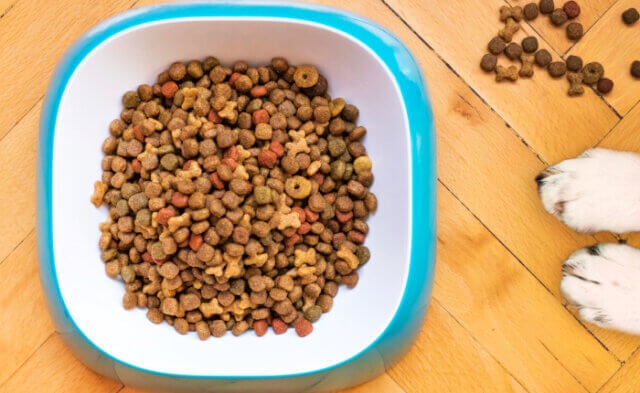How was your last haircut? Were there workers lined up at the salon door, shoving you through the entrance? Did the stylist slam you to the ground, hold you down with his body weight, and shave your head crudely and hurriedly? Did you feel the sudden agony of clippers cutting you, and did you howl in pain as your torn skin was sewn back together on the dirty, hair-covered floor?
Next time you hear somebody say that the shearing of sheep is “just like giving a haircut,” you might want to ask them what sort of barber they frequent.
Shearing sheep for their wool is universally cruel, no matter where it occurs and no matter what sort of “welfare” claims farmers might make. PETA has published 12 exposés of different shearing operations across four continents, and found the same cruel treatment of animals at every single one of them.
Our latest exposé took place at Bare Ranch in Nevada, which boasts of its “lifestyle rooted in tradition and grandeur.” This is a doubtful claim, since traditionally, sheep only grew enough wool to insulate themselves—sheep were only bred for continuous fleece growth after people invented shears.
One might also wonder what could be considered grand about the terror that workers inflicted on the sheep at Bare Ranch. PETA eyewitnesses saw workers hitting, pushing, and shoving recently-shorn sheep while loading them into trailers, and occasionally even striking them on the head and face.
They frightened the sheep by kicking the fencing next to them to make them move forward, and several sheep dropped to their knees or clambered over one another in panic. Eyewitness footage shows one sheep trying to escape, only to be chased by dogs, lassoed by the neck and yanked back in line, panting with fear at this violent response to her natural instinct for freedom.
A number of sheep had bloody wounds on their hindquarters, likely from rough, hurried shearing. Shearers are usually paid by volume, rather than an hourly wage, which means sheep are routinely wounded during the rushed shearing. Their wounds are sewn up on the floor of the shearing shed, using unsterile implements and no painkillers.
There is no reason to support the cruel wool industry, especially when there are so many great alternatives that are kind to animals and better for the environment. Natural fibers like hemp, cotton, and Tencel are friendly to animals, and, unlike wool production, they do not pollute waterways with animal waste.
It’s important that we ask ourselves what sort of cruelty could be hiding behind claims of “tradition.” There is no need to continue harming sheep for the sake of a sweater. We can all reject this cruel industry by refusing to buy or wear wool.







